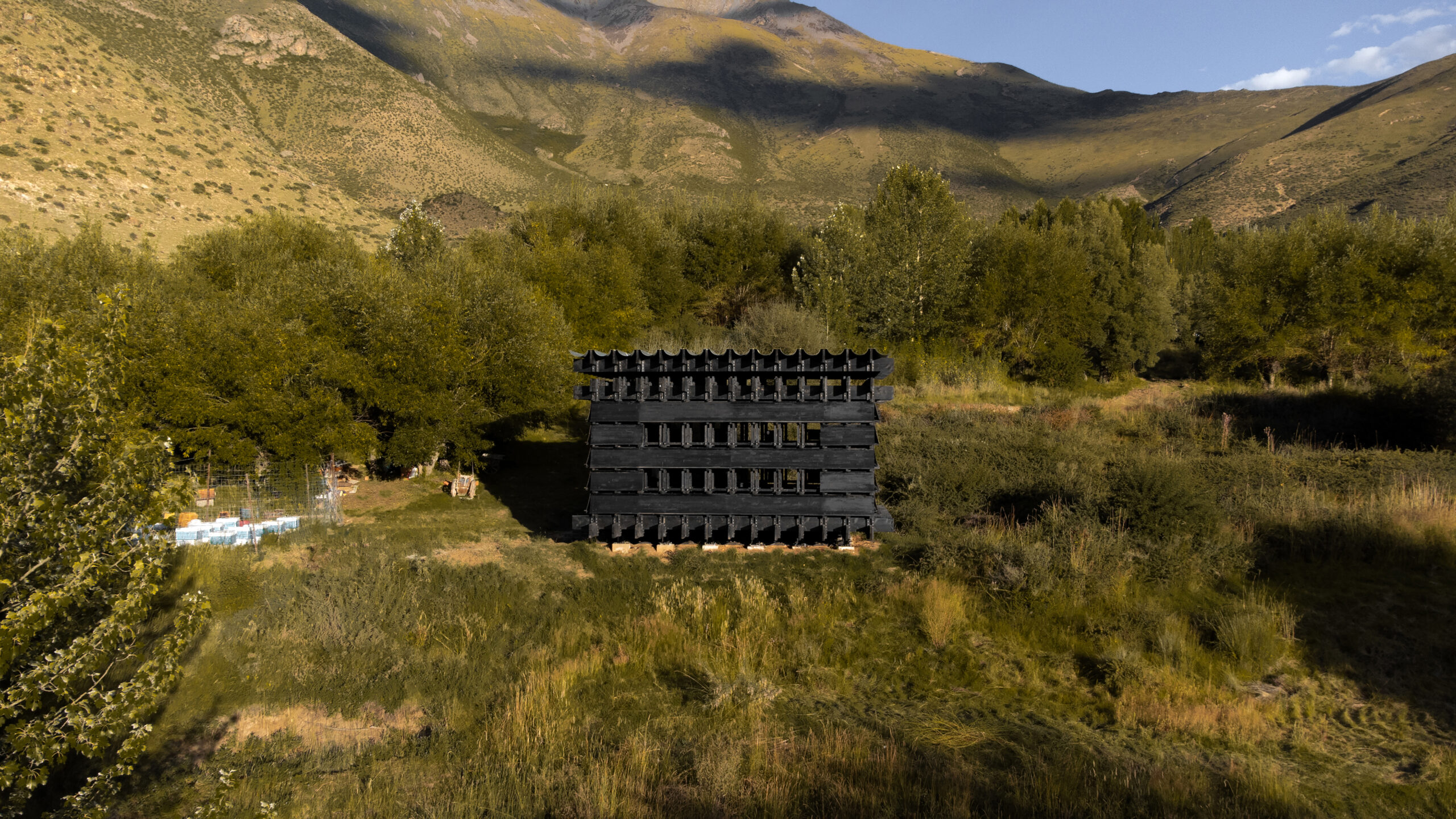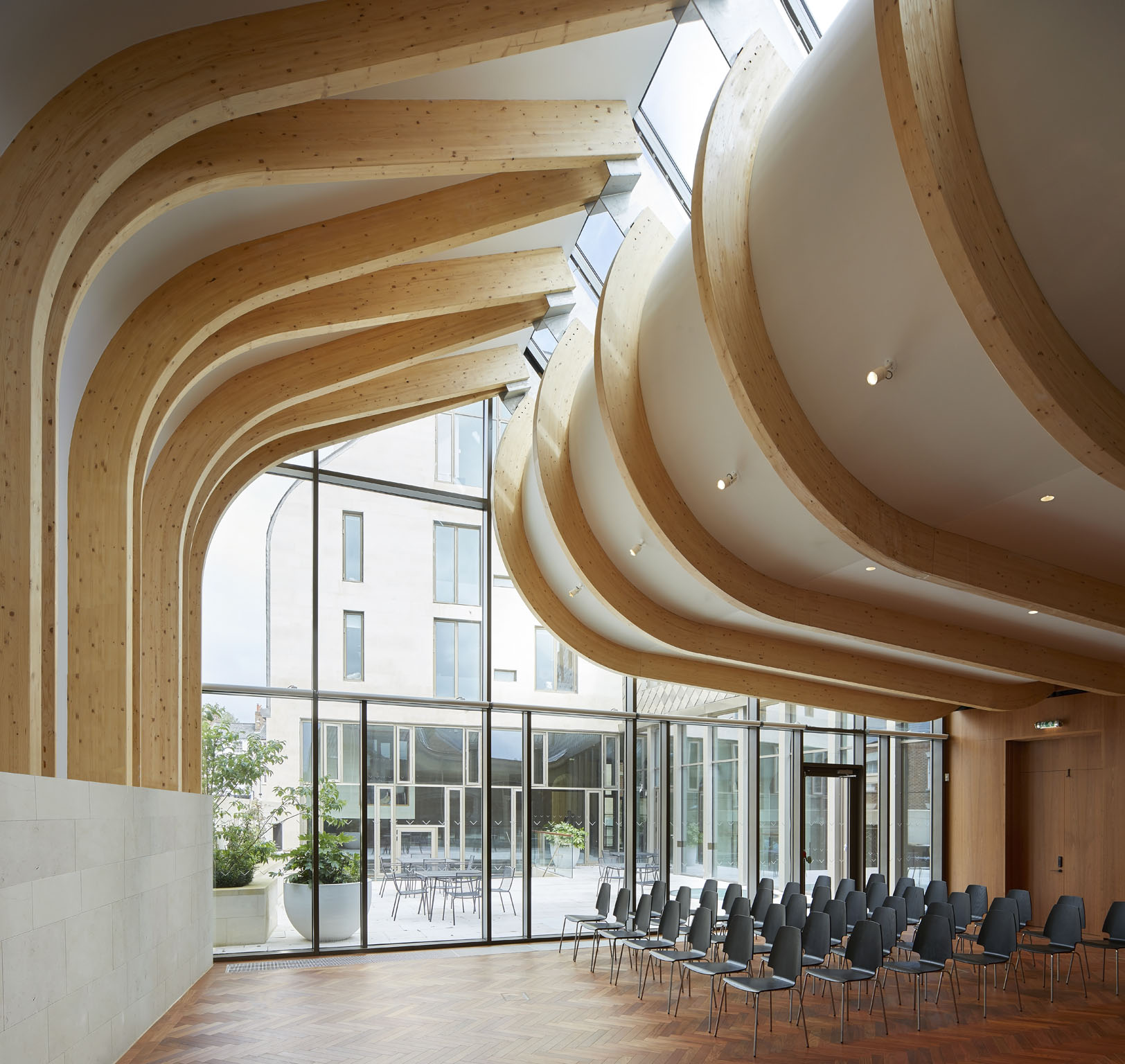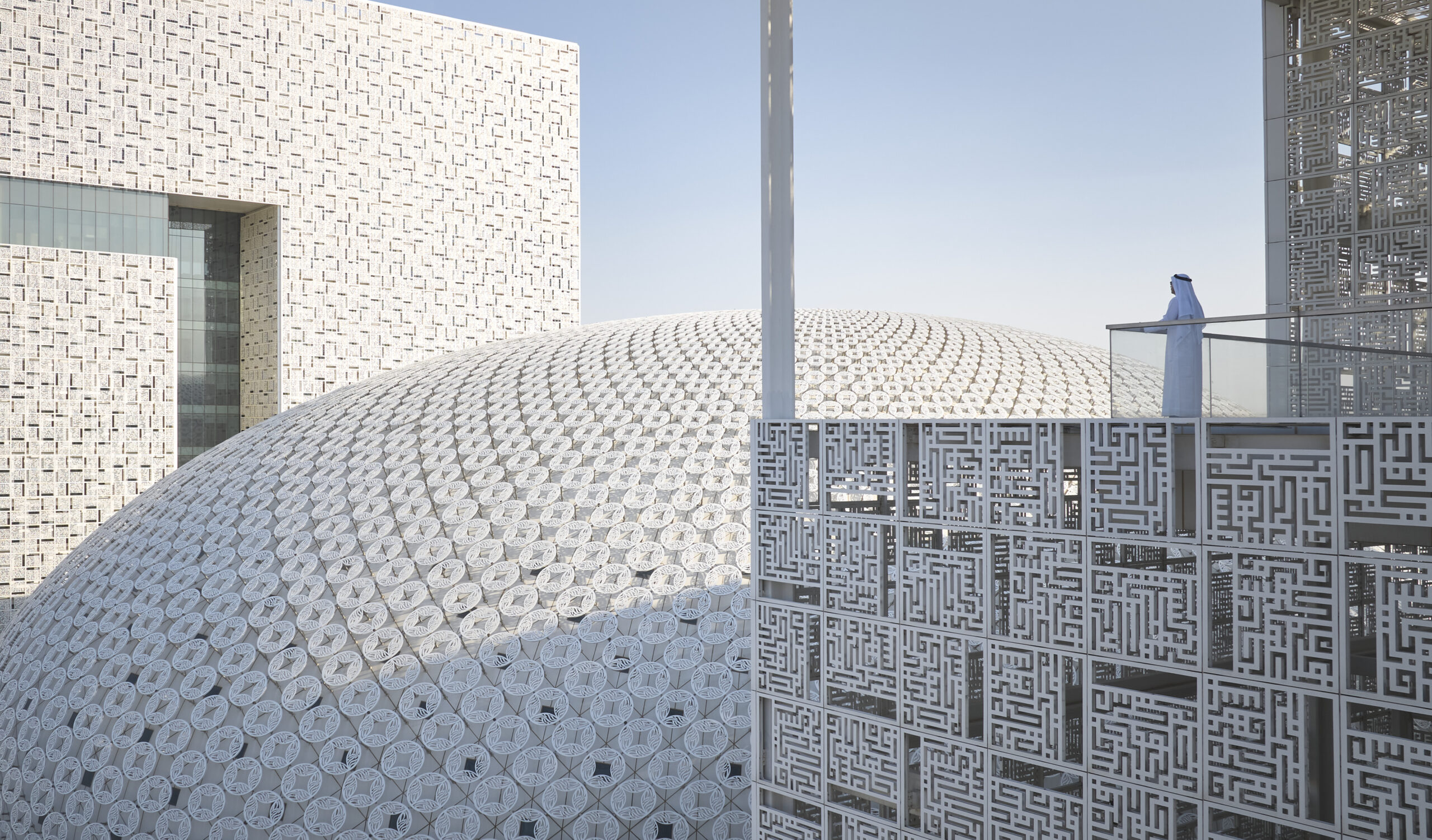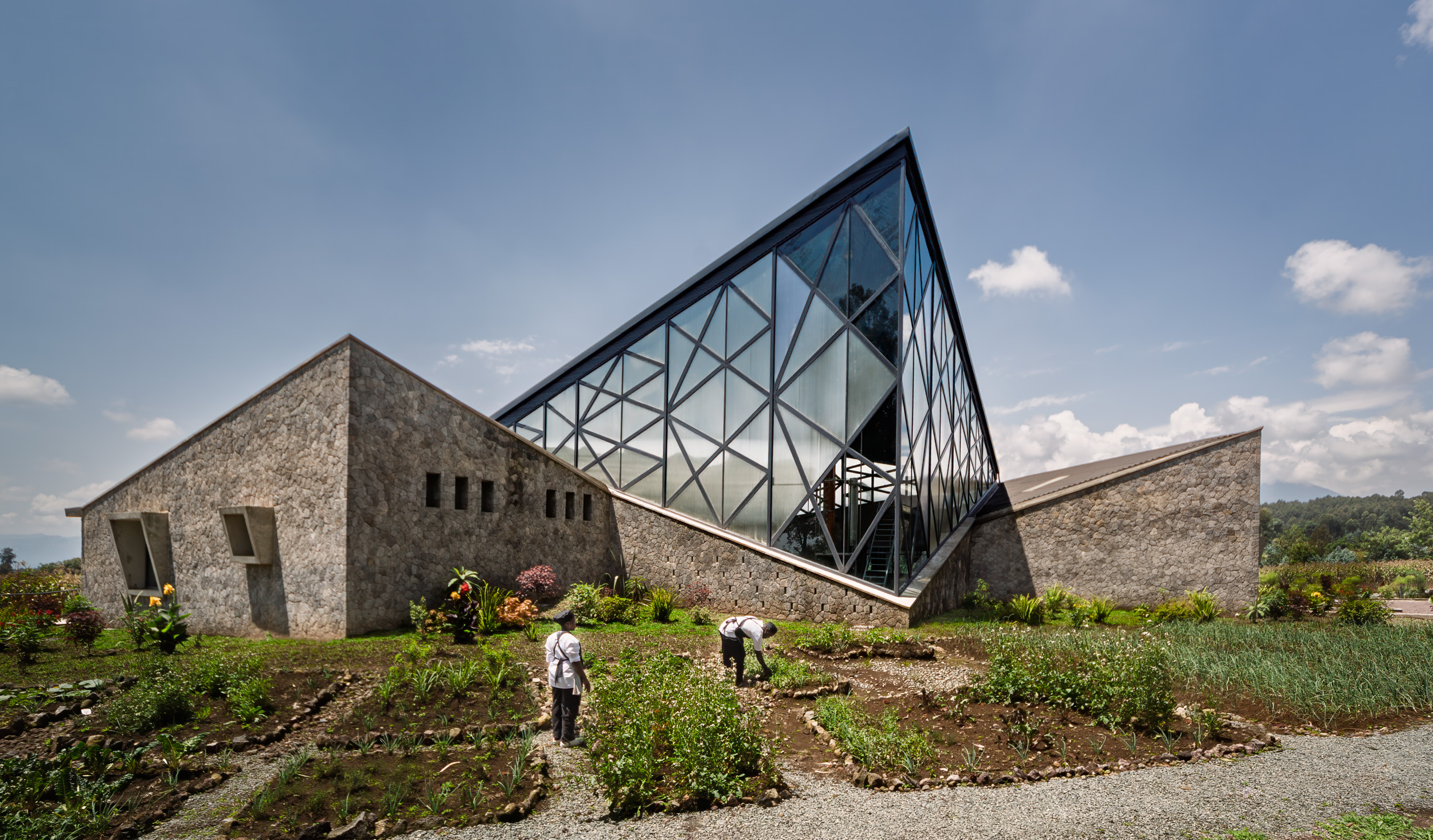The winners of the thirteenth Architizer A+Awards have been introduced! Waiting for subsequent season? Keep updated by subscribing to our A+Awards E-newsletter.
Few occasions in fashionable historical past have had as profound an impression on society because the Industrial Revolution. Throughout this transformative interval, industrialization changed centuries of localized craft and agrarian rhythms with a brand new paradigm of scale, effectivity and uniformity. Work turned sooner and cheaper however more and more indifferent from place, whereas each day life grew extra inflexible, much less attuned to nature and extra ruled by the clock. Sounds slightly too acquainted, doesn’t it? That’s as a result of…it type of is.
Whereas the instruments within the Age of Data are digital fairly than mechanical, the trajectory talked about above feels a lot the identical. Algorithms and automation promise larger effectivity, wider attain and a assured uniformity that smooths over the irregularities of each day life and the human contact that used to form it.
However historical past is right here to remind us that fast progress is commonly adopted by a quiet (or generally, not so quiet) eager for what it leaves behind. Even when we haven’t formally named it that, the indicators are already right here: cottagecore, handmade items, the rise of “gradual” residing. All in all, a tradition craving for the previous. And craving, in spite of everything, has all the time been on the coronary heart of romanticism.
May a brand new romantic period already be underway? Fairly probably. However what would that imply for structure then? And what are the indicators that inform us it’s arriving? To reply these questions, it helps to begin originally.
What’s Romanticism, Anyway?
The Bull @ Zab e Lee Cooking Faculty by Chiangmai Life Architects, Chiang Mai, Thailand | Jury Winner, thirteenth Annual A+Awards, Sustainable Hospitality Constructing
Romanticism emerged within the late 18th and early nineteenth centuries as a cultural and inventive response to the rationalism and industrialization of the trendy period. Rejecting uniformity and mechanization, it positioned new significance on emotion, individuality and the ability of nature. Writers resembling Wordsworth, Goethe and Byron outlined the motion’s literary voice, whereas works like Frankenstein and The Stones of Venice mirrored its unease with unrestrained progress and its fascination with reminiscence, craft and the elegant.
In structure, these beliefs translated right into a revival of varieties and sensibilities that celebrated irregularity, sense of place and the human hand. The Gothic Revival appeared to the richness and ethical resonance of medieval buildings, advocated by figures like Augustus Pugin and John Ruskin. The Arts and Crafts motion carried the identical ideas into on a regular basis life, prioritizing trustworthy supplies and visual craft over industrial sameness. Alongside it, the Picturesque excellent formed cottages and follies that appeared to develop naturally from the panorama, embracing asymmetry, informality and native custom.
Romantic structure, very like the motion as a complete, stood as a critique of homogeneity, quietly defending reminiscence and that means, two qualities that really feel more and more related once more.
Why Romanticism Now?

Shannan Beehive Statement Cabin by OMNO Lab, Qonggyai County, Shannan, China | Jury Winner, thirteenth Annual A+Awards, Structure +Localism
It isn’t onerous to see why Romanticism is resurfacing. The circumstances that impressed it the primary time really feel fairly acquainted. Then, it was factories, carbon-filled cities and a relentless rise of mass-produced items, all of which contributed to the alienation from nature and craft. Now, it’s algorithms, automation, international provide chains and a brand new sort of homogeneity (one pushed not by steam however by information). But, the outcomes are strikingly comparable.
True, our each day lives have change into extra environment friendly, however at the price of a way of place and humanity. Properties, streets and even total cities typically really feel interchangeable, formed by the identical templates and stocked with the identical supplies, no matter the place they stand.
The worldwide attain of provide chains has made extra issues extra accessible, stripping away a lot of the individuality and materials connection that when outlined how we inhabited area within the course of. Furthermore, this new system introduced ecological penalties resembling rising emissions, useful resource depletion and alienation from native tradition, which at this level has change into unattainable to disregard.

Arghavan (Cercis) Business Undertaking by 13 Levels Structure Studio, Yazd, Iran | Standard Selection Winner, thirteenth Annual A+Awards, Structure +Innovation
A response to those adjustments is already underway, as extra architects and purchasers search for approaches that really feel each rooted and intentional. Craftsmanship and the seen presence of the maker’s hand are more and more valued not simply as nostalgic gestures however as significant methods to reconnect folks with the areas they inhabit. This has gone hand in hand with a renewed curiosity in regional supplies and site-specific design, which supply a approach to push again in opposition to the sameness of worldwide manufacturing whereas giving initiatives a stronger sense of place. Emotional resonance, too, is being introduced again to the middle of design considering, not as a secondary impact however as a legit and important aim.
However as a substitute of rejecting progress outright, this shift displays an acknowledgment of its limits and a deliberate try and get well what has been misplaced alongside the way in which.
What Does Romanticism 2.0 Look Like?

Exeter School Cohen Quad, Oxford by Alison Brooks Architects, Oxford, United Kingdom
You’ll be able to already see what this shift seems to be like in apply. Many up to date initiatives are turning to reclaimed supplies that present their age fairly than cover it. Imperfect wooden, weathered stone and hand-shaped tiles are being chosen for the depth and texture they bring about, fairly than for a streamlined, flawless end. These selections are much less about nostalgia than about making buildings really feel linked to the rhythms of time and the particular qualities of their place.
Some initiatives take their cues straight from native traditions and landscapes, translating them into structure that feels rooted with out being imitative. Alison Brooks’ Cohen Quad at Oxford attracts on the language of Gothic structure, remodeling its varieties and proportions for up to date tutorial life whereas acknowledging its historic environment. Many companies at the moment are rethinking how supplies can form not simply the looks however the expertise of an area. Kengo Kuma and Associates, for instance, discover wooden not merely as a structural factor however as a manner of constructing, utilizing joinery, gentle and texture to create areas that really feel intimate and grounded, even at a big scale. This renewed consideration to materiality displays a wider shift towards designs that really feel extra linked, tactile and human.

Kuwait College by Skidmore, Owings & Merrill (SOM), Kuwait | Jury Winners, thirteenth Annual A+Awards, Structure +Facades
The 2025 A+Award winners showcase this mindset throughout many classes, proving that craft, context and care have returned to the dialog about what makes structure significant. Throughout the board, we see architects turning to domestically sourced supplies, drawing on conventional methods and collaborating carefully with craftspeople and artists to create work that feels linked to its place. These initiatives present how design can go away behind extra than simply buildings by fostering expertise, supporting native economies and reinforcing cultural identification via the very course of of creating.
And whereas such initiatives could not command consideration the way in which a dramatic skyscraper does (or, at this level, used to), they mark a quiet shift towards buildings which are rooted, responsive and prepared to embrace imperfection.
The place May This Go?

Virunga Mountain Spirits Distillery by BE_Design, Musanze, Northern Province, Rwanda | Jury Winner and Standard Selection Winner, thirteenth Annual A+Awards, Structure +Low Price Design
It’s too quickly to say whether or not Romanticism 2.0 will develop right into a dominant power in structure or stay a quiet countercurrent. What is obvious, nonetheless, is that its underlying impulse to make buildings extra humane, extra linked and extra particular to their place speaks to wants which are solely turning into extra pressing.
The problem forward will likely be discovering methods to steadiness the efficiencies of expertise with the care and intention of craft, making certain that progress doesn’t come on the expense of that means. The indicators of that steadiness are already right here. What stays is to see how far the career is prepared to take them.
The winners of the thirteenth Architizer A+Awards have been introduced! Waiting for subsequent season? Keep updated by subscribing to our A+Awards E-newsletter.
















